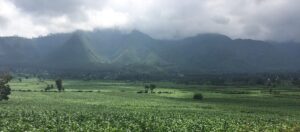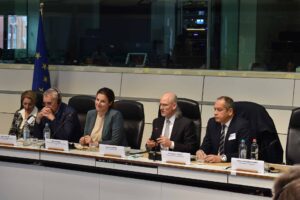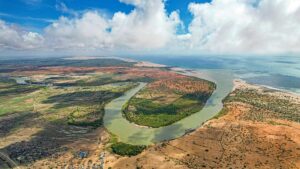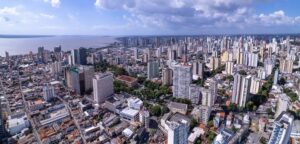World Water Week: The Springboard to COP30 and the 2026 UN Water Conference

Porto Alegre and the surrounding state of Rio Grande do Sul faced its worst flooding in more than 80 years in 2024—damaging infrastructure across hundreds of municipalities, displacing hundreds of thousands of people, and causing economic losses estimated at up to USD 2 billion. These kinds of stories are becoming increasingly common: the World Meteorological Organization recorded over 600 extreme weather events last year alone. “Climate impacts are felt through water — too much, too little, or too polluted. We cannot talk about climate action without talking about water,” said Climate High-Level Champion Dan Ioschpe at World Water Week.
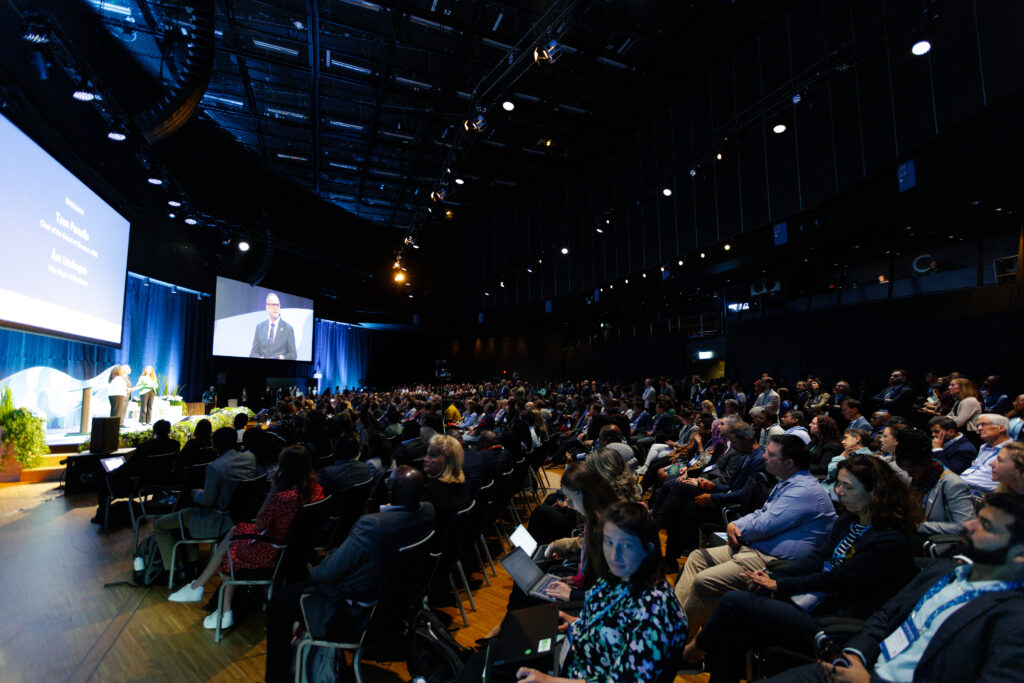
Water Moves to Center Stage
World Water Week 2025 closed with a clear message: water is no longer on the sidelines—it is central to climate action. Throughout the week, leaders from across the world emphasized that the next steps on the road to COP30 and the UN 2026 Water Conference must be built on water solutions that are ready to scale.
The COP30 Action Agenda
The COP30 Action Agenda, launched by the incoming Brazilian Presidency, sets out six interconnected axes: transforming energy and transport, stewarding forests and biodiversity, reshaping agriculture and food systems, building resilience in cities and water systems, fostering human and social development, and unleashing enablers such as finance, technology, and governance.
Water flows through all of these priorities. Some objectives are explicit—protecting wetlands, watersheds, and freshwater ecosystems; boosting irrigation efficiency and drought resilience; strengthening governance for water institutions. Others are closely tied, from mobilizing climate finance for water infrastructure to making cities and communities more resilient to floods, droughts, and water quality challenges. By the time of the next Global Stocktake in 2028, the goal is for water to be fully integrated into national adaptation plans and nationally determined contributions.

Momentum from World Water Week
This year’s World Water Week showed how that ambition can become reality. The discussions in Stockholm highlighted not only where the challenges remain, but also where progress is possible through innovation, inclusion, and partnerships. Climate High-Level Champion Dan Ioschpe, a speaker at the World Water Week High-Level Panel on Water’s pathway in Global Processes put it plainly: “We cannot talk about climate action without talking about water.” Climate High-Level Champions are appointed for each COP Presidency to mobilize action beyond governments, linking negotiations with businesses, cities, and civil society to accelerate real-world implementation.
Reflecting on the High-Level Panel at World Water Week, SIWI’s Maggie White noted: “There’s been a beautiful full circle. SIWI started by connecting the dots between water and resilience eight years ago with the first High Level Panel at World Water Week. Now, the global conversation has caught up—resilience thinking is no longer on the sidelines. It’s becoming a core principle in how water must be managed, financed, and governed.”
The World Water Week also reaffirmed the spirit of mutirão—a collective effort—that underpins the COP30 Presidency’s approach. Participants from governments, businesses, civil society, and Indigenous Peoples stressed the importance of working together across silos, connecting local solutions to global frameworks, and ensuring commitments translate into real implementation.
Translating World Water Week into COP30 Action
One way that momentum is being carried forward is through SIWI’s active role in COP30’s Activation Groups. These new groups are aligned with each of the six thematic axes and bring together governments, civil society, researchers, businesses, and international organizations to coordinate delivery. SIWI’s engagement ensures that the knowledge and solutions showcased at World Water Week are not left behind in Stockholm but feed directly into the global processes shaping COP30.
At the same time, SIWI and the Water for Climate Pavilion are contributing to the preparations for COP30’s Thematic Days, which will highlight how water connects issues such as resilience, ecosystems, and finance. This ensures that when leaders gather in Belém, water is visible not as a stand-alone topic but as the foundation that underpins progress across the entire Action Agenda.
This work reflects the spirit of mutirão—a collective effort—that underpins the COP30 Presidency’s approach. Just as World Water Week brought together governments, businesses, civil society, and Indigenous Peoples, the Activation Groups and Thematic Days are designed to carry that inclusivity into the heart of the climate negotiations.
Global Preparations Gain Pace
And the momentum does not stop in Stockholm. Already on 29 August, the day after World Water Week ends, the Climate High-Level Champions are hosting a webinar—COP30: Join the Climate Action Agenda – Journey to Belém. This virtual session will offer clarity on the Action Agenda’s structure and spotlight how non-state actors can engage ahead of the summit. We encourage everyone interested to register and take part.
Looking Ahead to Belém and Beyond
Looking ahead, the challenge is to carry this momentum forward. As Maggie White emphasized, “The world sees that water isn’t just part of the solution—it is the foundation. This is the moment to turn alignment into action. With COP30 around the corner and the next UN 2026 Water Conference focusing on global processes and implementation, water can be the bridge between ambition and action.”
The road from Stockholm to Belém and beyond has begun. What matters now is how far, and how fast, the global community is willing to go—together.
